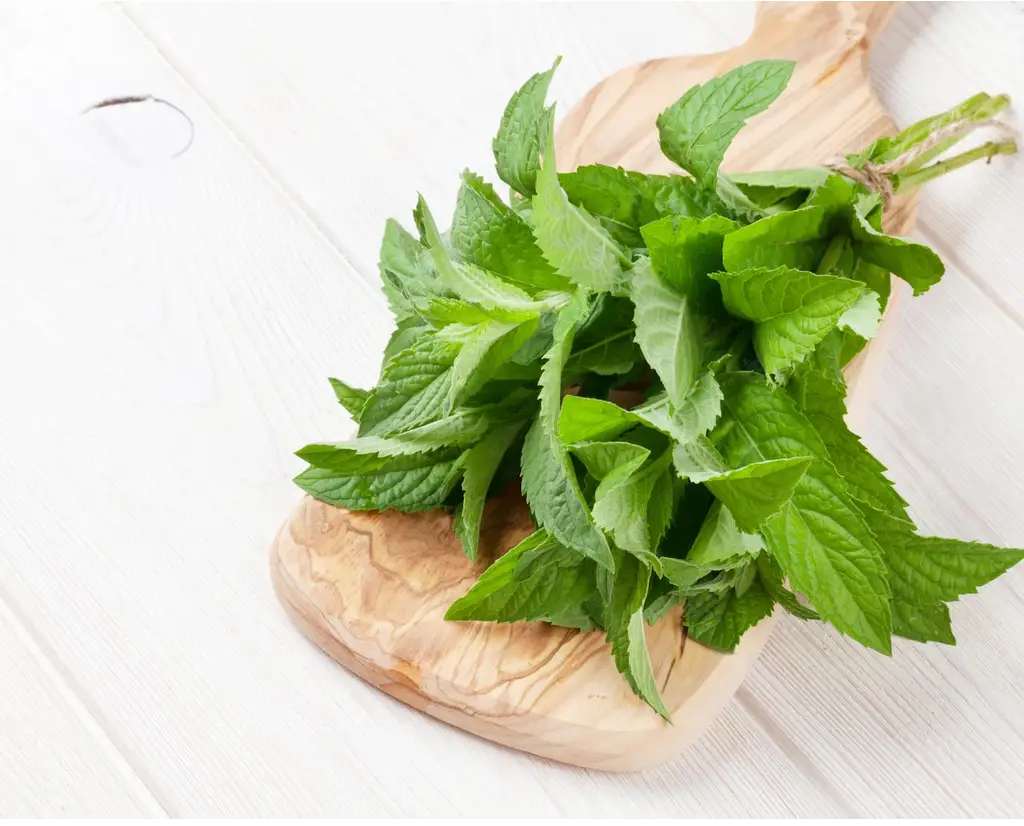Mints are the greatest. Mints can be used to freshen your breath, cool down a hot cup of tea, and even act as a garnish on salads. Mint is also known for its healing properties, as it can be used in various ways, such as aromatherapy or herbal medicine.
You’ve reached the halfway mark and are starting to feel faint. You open your desk drawer, reach inside, and pull out a pack of mints. Five minutes later, you feel full and refreshed. At this point in time, you’re wondering: Do mints break intermittent fasting?
Ask anyone who’s done a round of intermittent fasting, and they’ll tell you it’s not that easy. One of the hardest parts is not eating those tempting treats.
There are a few reasons why it is recommended to avoid mints when intermittent fasting. This article will address these questions and more.
In Case You Missed:
What Is Intermittent Fasting?

Intermittent fasting is a diet program in which you eat all of your calories in a short window of time, usually between eight and 12 hours. You then fast for the remaining 16 to 18 hours each day.
There are many types:
- 16:8 intermittent fasting: Eat during an eight-hour period and fast for 16 hours. For example, eat from noon to 8 p.m., then do not eat again until breakfast at 8 a.m. the next morning (16 hours). This is also known as “time-restricted feeding.”
- 5:2 intermittent fasting: Eat normally five days per week and severely restrict calories two nonconsecutive days per week by consuming only 500 to 600 calories on those days (women) or 600 to 800 calories (men).
Fasting has been practiced since ancient times to promote good health and spiritual growth. It is generally done for a period of 12 to 24 hours or two to three days, depending on the individual’s needs.
What Is a Mint?

Mint is a plant. It’s a culinary herb that you can use in cooking and for making mint tea. Mints are candies flavored by the essential oils of mint leaves.
The word ‘mint’ also refers to the genus Mentha, which includes hundreds of different types of plants with similar characteristics—namely those used for flavoring food, drinks, toothpaste, and chewing gum.
Mint is also used as an adjective when referring to something that smells or tastes like mints, such as peppermint or spearmint-flavored items like gum or breath mints!
How Many Calories Is a Mint?
Mints are a great way to curb your appetite and make you feel less hungry. In fact, one study found that chewing gum can reduce the amount of food you eat by as much as 40%.
Mint is also an excellent source of antioxidants and has been shown to help soothe indigestion and improve breath odor!
However, mints do come with their own unique set of nutritional values. Mints are high in calories because they’re made from sugar or artificial sweeteners such as sorbitol or xylitol (a sugar substitute).
One mint could provide anywhere from 5 calories up to 35 calories depending on what type it is and how much peppermint oil was added during manufacture.
Can You Eat Mints on Intermittent Fasting?

Intermittent fasting is a diet in which you alternate between periods of fasting and eating. Many people follow this diet because it allows them to have more control over their weight while still providing benefits like increased mental acuity and reduced inflammation.
The main benefit of intermittent fasting is that it’s simple: no tracking calories or points, no weighing yourself every day, or feeling guilty about your food choices.
The downside? You can only eat during a specific window of time each day—and if you go outside that window, even for something as innocuous as popping a mint in your mouth (ew), then you’re breaking the fast and should start again tomorrow.
So can you eat mints on intermittent fasting? Well, it depends. While some say the answer is yes—after all, mints are just tiny bits of sugar that dissolve quickly in your mouth without being chewed—others say no. The problem with eating anything while fasting is that it could break your fast or cause you to overeat later when you’re not supposed to.
The best policy is to just drink water, black/green/herbal tea, or black coffee when fasting. If you do want some flavor variety and are up for a challenge, then try adding lemon or lime to your water.
Do Mints Break Intermittent Fasting?
Yes, unless they are sugar-free ones. In the event that you feel like eating something, we recommend going for a sugar-free mint.
Sugar-free mints and gum can be helpful in managing your cravings because they provide a sweet flavor without any calories. These treats might also help you stave off hunger pangs until the next meal or snack time arrives.
Never eat mints if they are filled with sugar and other harmful ingredients like artificial colors and flavors – these will break your fast!
If you feel you need to eat something (beyond hunger), then just eat something and break the fast! You don’t lose anything by needing to stop your eating window early or even restarting an entire 24-hour period on another day if necessary, so don’t stress about it too much – just try again tomorrow!
Tips for Sticking With Intermittent Fasting

1. Hydration
Stay hydrated. This means water, not diet soda or other calorie-free beverages.
2. Healthy Breakfast
Eat a healthy breakfast. Don’t skip it!
3. Plan Ahead
Make sure you have a plan for the day. If you’re new to intermittent fasting and don’t know what to expect when hunger strikes, try planning out what you will do during those times in advance of your fast: maybe it’s taking a walk around the neighborhood or watching TV.
You can also set aside time before bed every night so that when hunger comes knocking, you’ll be ready with an actionable plan for how to deal with it the next day—or even better yet so that when those feelings of hunger do come along after dinner one evening, you’ll decide not to eat anything at all because there’s no real reason why you should go hungry just because it’s been eight hours since lunchtime!
4. Don’t Beat Yourself
Don’t beat yourself up if something goes wrong during your fasts – everyone has off days sometimes, but they are part of life, so don’t stress too much over them!
The key here is keeping perspective on things which means knowing that tomorrow is another opportunity where everything could go right again if we get our act together today 🙂
The Bottom Line
If you have trouble with intermittent fasting or any other diet plan, it’s important that you don’t beat yourself up over it. If you slip up every once in a while and eat something during your fasted window, that doesn’t mean that your entire diet is ruined.
It just means that you should try not to make this a habit — if it happens once every few months perhaps, but don’t worry too much about these small mistakes because they won’t affect your progress.
Frequently Asked Questions
When doing intermittent fasting, do mints break a fast?
Yes, mints can break a fast. Mints are a popular breath freshener, but they also contain sugar and other ingredients that can break your fast. You’ll want to avoid eating mints while fasting if you’re doing intermittent fasting or if you’re following a ketogenic diet.
How many calories break a fast?
If you’re fasting, it’s best to stick to zero-calorie beverages like black coffee or plain water. It is recommended you follow a fasting schedule that’s tailored to your individual needs and health goals. But if you’re doing a longer fast, you may be able to drink small amounts of other liquids like broth, vegetable juice, lemonade, or tea.
What breaks intermittent fasting?
The main thing that breaks intermittent fasting is eating. You can’t have any calories, no matter how small. If you do, the fasting process will be broken, and you’ll have to start over. The reason why intermittent fasting works is that you’re allowing your body to go into a state of ketosis, which is when your body burns fat for fuel instead of carbs. So if you eat anything with carbs in it, the ketone levels in your blood will rise above what they should be, and your body will go back to burning carbohydrates as its primary form of energy (which isn’t good). This is why it’s so important not only to avoid eating during your fasting periods but also to avoid drinking anything other than water or tea during those times, too — even if it’s just a few sips!
What doesn’t break intermittent fasting?
It’s important to note that black coffee and unsweetened milk-free tea (without milk) are valid options during your fasting window. These drinks are not considered food and don’t break your fast. However, if you add sugar or milk to your drink, it will become a meal which then breaks your fast. The same goes for any other sweetener, such as Stevia or Splenda.
Can you have gum or mints while fasting?
Strict fasting doesn’t allow chewing gum. Gum and mints are low in calories – as long as you choose sugar-free gum and mints. But many of these products contain artificial sweeteners that may spike blood sugar levels and cause insulin release.
Conclusion
Mints are a great way to give your breath some freshness, but they can also be used as an ingredient in many recipes. Mints can be used as an ingredient in desserts and drinks, or they can simply be eaten on their own.
The biggest benefit of mints is that it’s easy to find them at any grocery store or gas station, so there will always be some available when needed!
You may be wondering, are mints allowed on fasting? The answer is no. Mints are technically a food, and any food you eat during the fasting window breaks your fast.
References
- 8 Health Benefits of Mint: https://www.healthline.com/nutrition/mint-benefits
- Short-term Effects of Chewing Gum on Snack Intake and Appetite: https://www.sciencedirect.com/science/article/abs/pii/S019566630600626X?via%3Dihub















